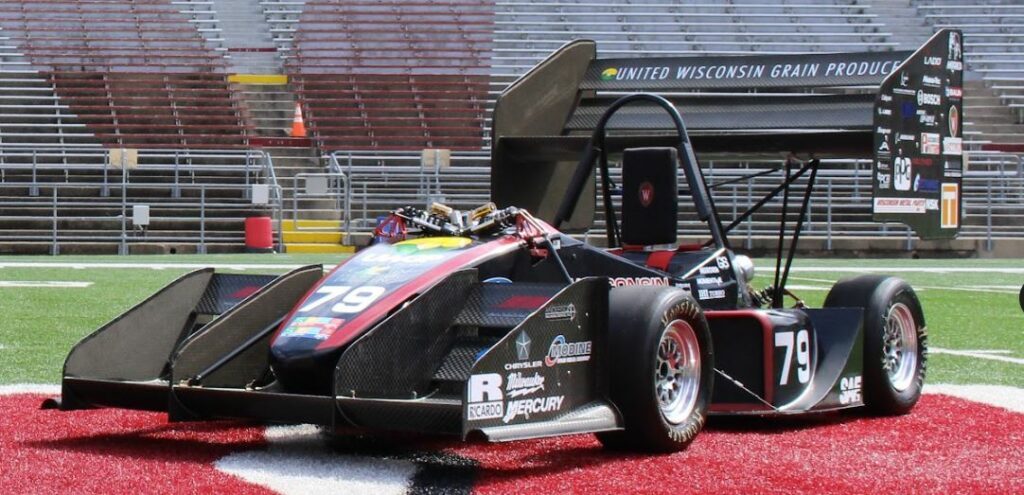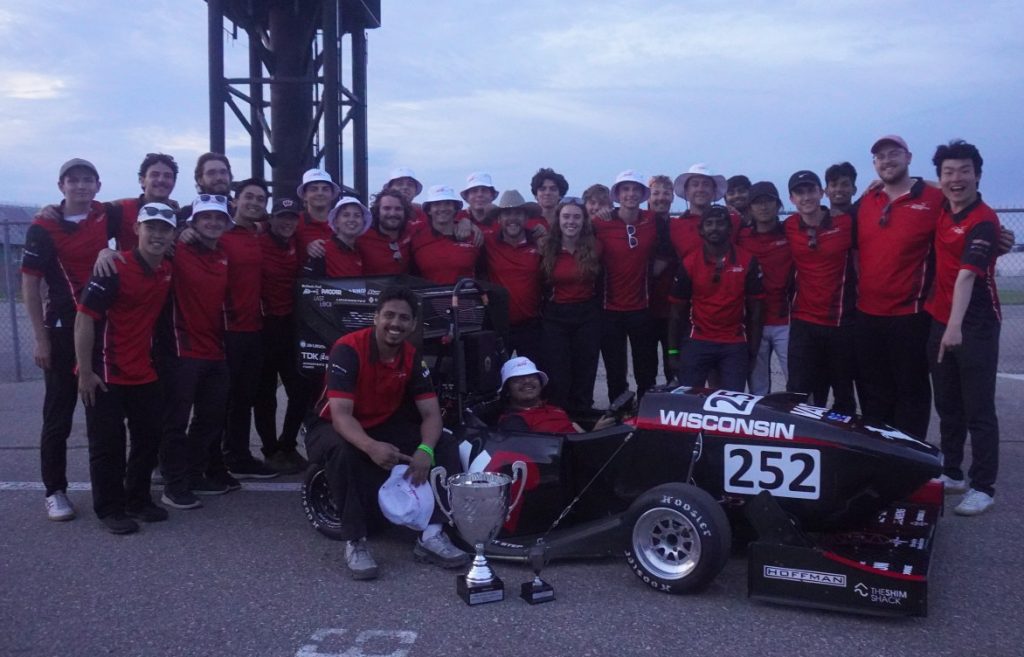
Wr 224E
With 224E, the team took an impressive 3rd place overall at competition. Notably, the car featured a redesigned accumulator and aero package. The 224E showcased the team’s ingenuity with custom in-hub motors, controls, and BMS.

With 224E, the team took an impressive 3rd place overall at competition. Notably, the car featured a redesigned accumulator and aero package. The 224E showcased the team’s ingenuity with custom in-hub motors, controls, and BMS.
Sporting an iconic livery, our beloved “Cow Car” was designed with reliability in mind. The 224C featured our second generation Yamaha CP2 package which saw the previous year’s dry sump system dropped for a simpler and lighter wet sump oiling system. Other changes to the vehicle included a fully redesigned aero package, new differential mounting, and a refined exhaust system which allowed the car to drop 57 pounds from our previous design. The 224C was awarded 3rd in design and finished 24th overall at competition in Michigan.
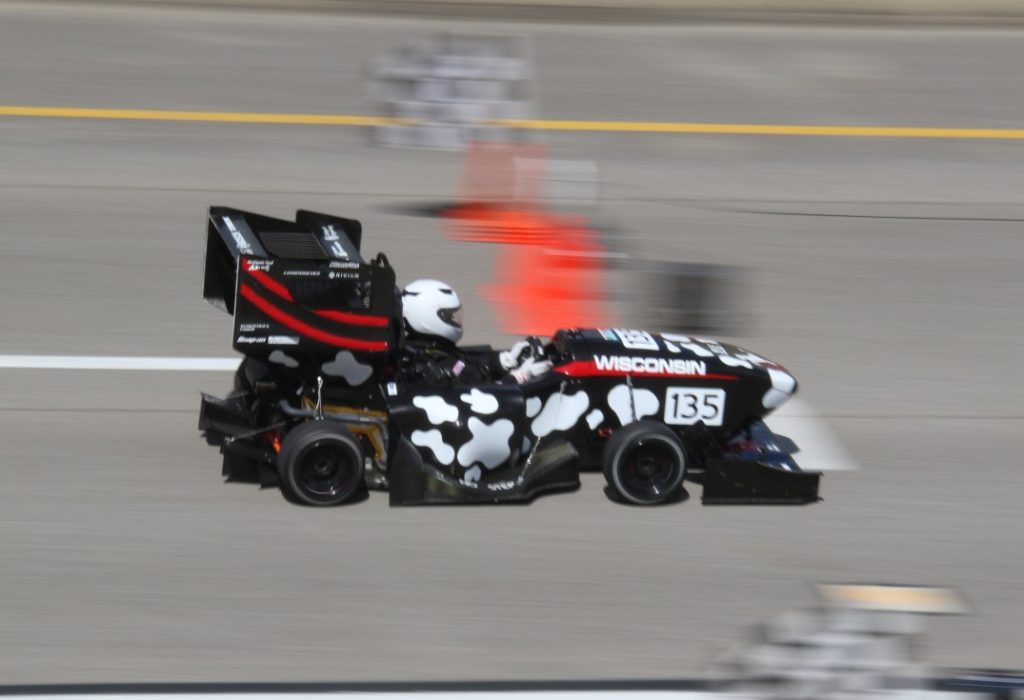
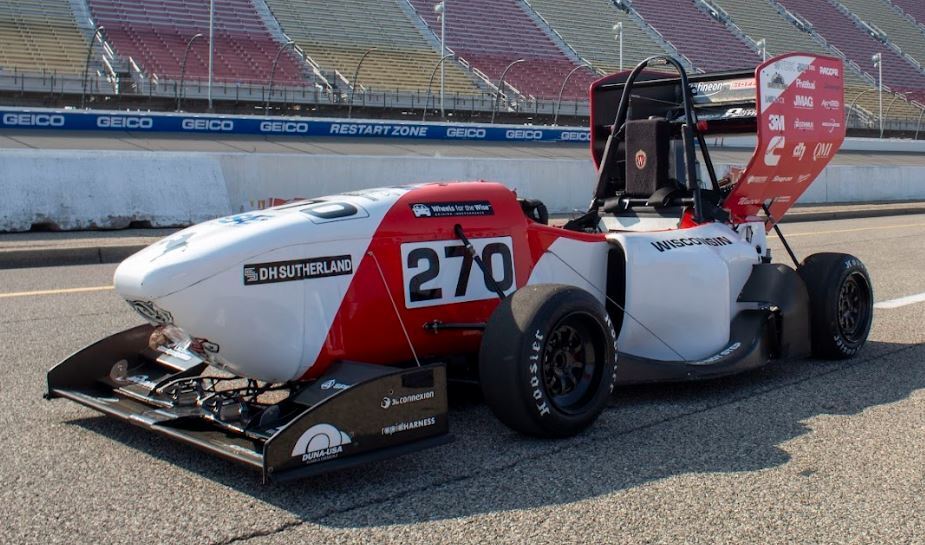
Suffering a transmission failure the weekend before competition, the 223E arrived at comp running only two motors rather than its intended four. Despite the conversion, the car still proved to be a worthy competitor. The 223E featured a full monocoque – a first for our electric cars. Other improvements included a new aero package and a new steering wheel.
Our 2023 combustion car, the 223C, ran at competition with a fully redesigned aero package and featured a new engine, the Yamaha CP2 twin cylinder. To support the new engine package we developed a full carbon intake plenum, custom exhaust and muffler system, and a dry sump oiling system for the engine.
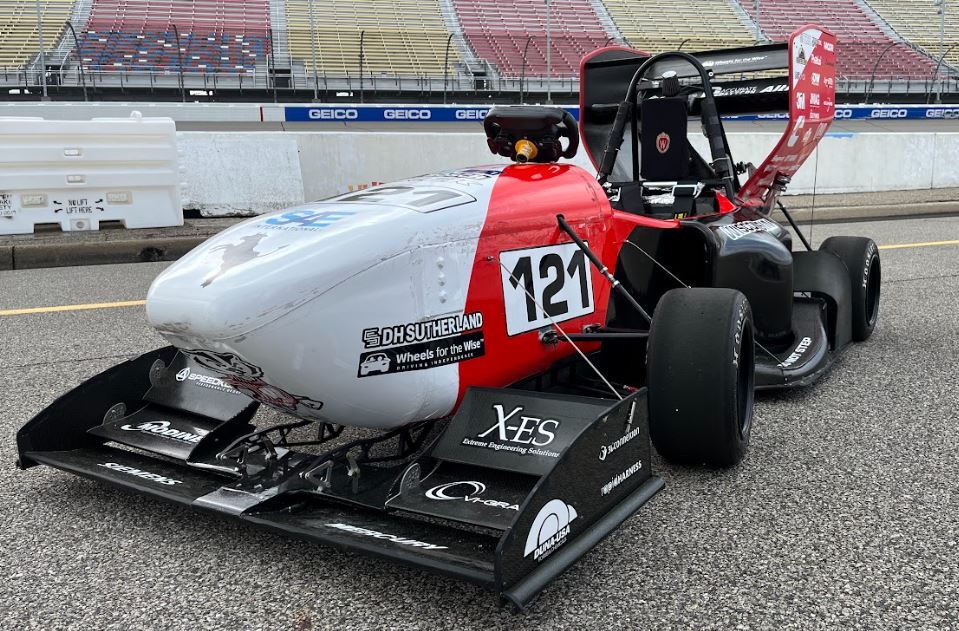
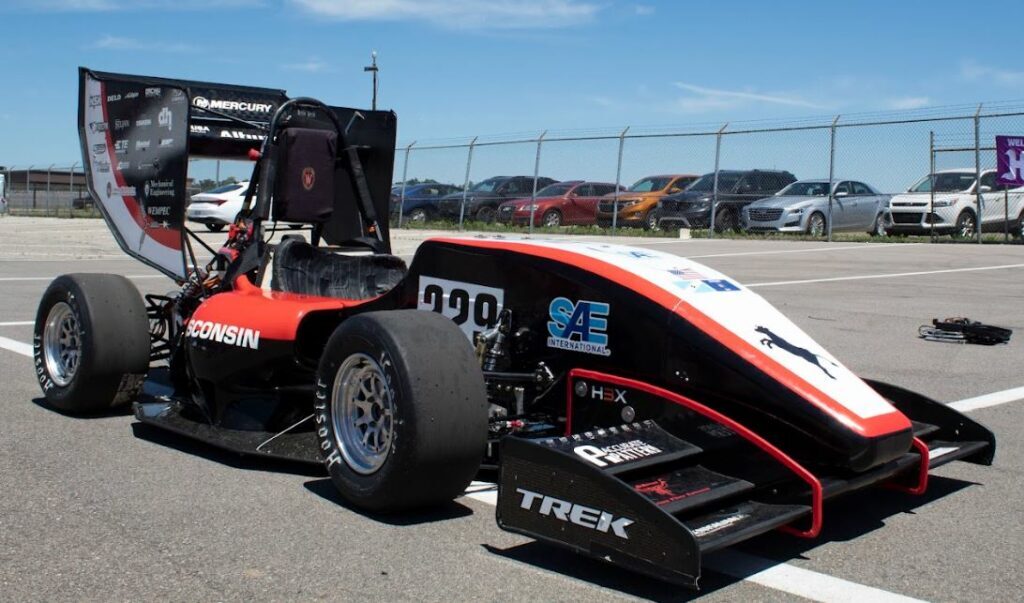
Back from a one year hiatus, our electric contender the 222E showcased our iconic four motor all wheel drive system. The 222E was our last car to run our three quarters hybrid monocoque-tube chassis.
The 222C featured our first ever full monocoque chassis. Other notable features on this car included a switch to pnEumatic shifting and a one year only run of a decoupled roll-heave suspension setup. This was our last car to run our single cylinder turbocharged Yamaha YZ-450 package.
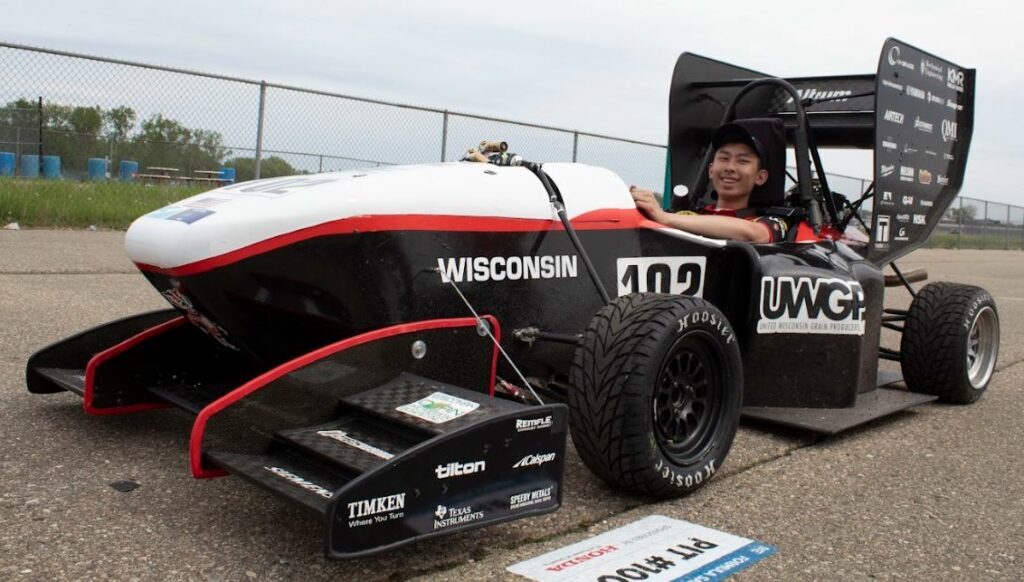
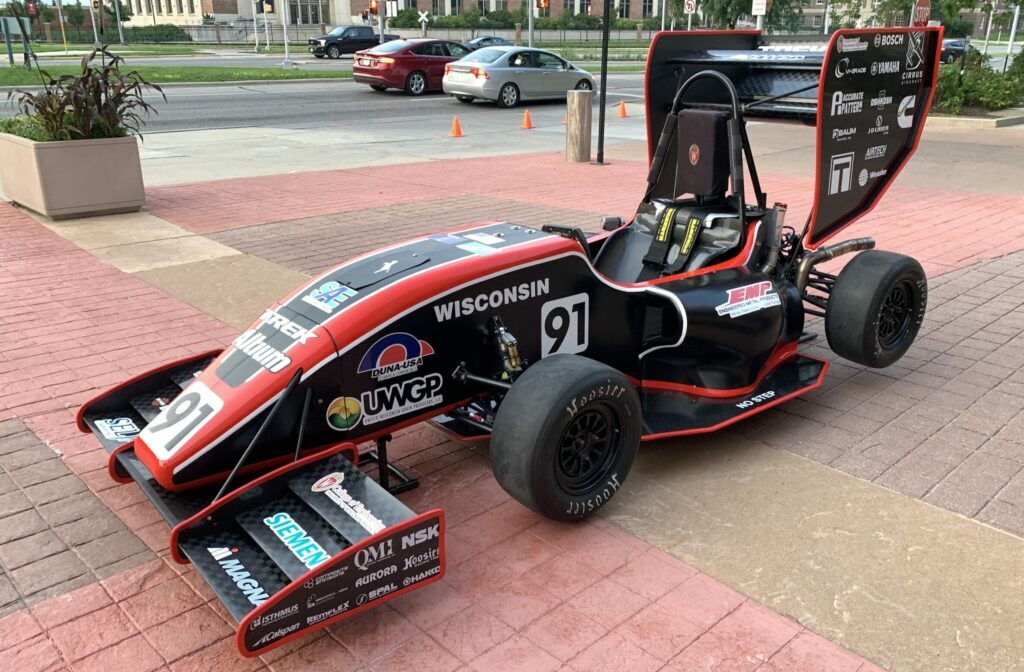
The 221C was our first car back from Covid. Featuring a three quarters hybrid monocoque-tube chassis and our turbocharged Yamaha YZ-450 with electric shifting, this car packed a punch. We successfully completed every dynamic event and placed 2nd in fuel efficiency.
Focusing on vehicle testing, the 219E featured many improvements. Major improvements included a more reliable motor controller, system effeciency characterizations, and a state of charge estimate for the battery to aid drivers.
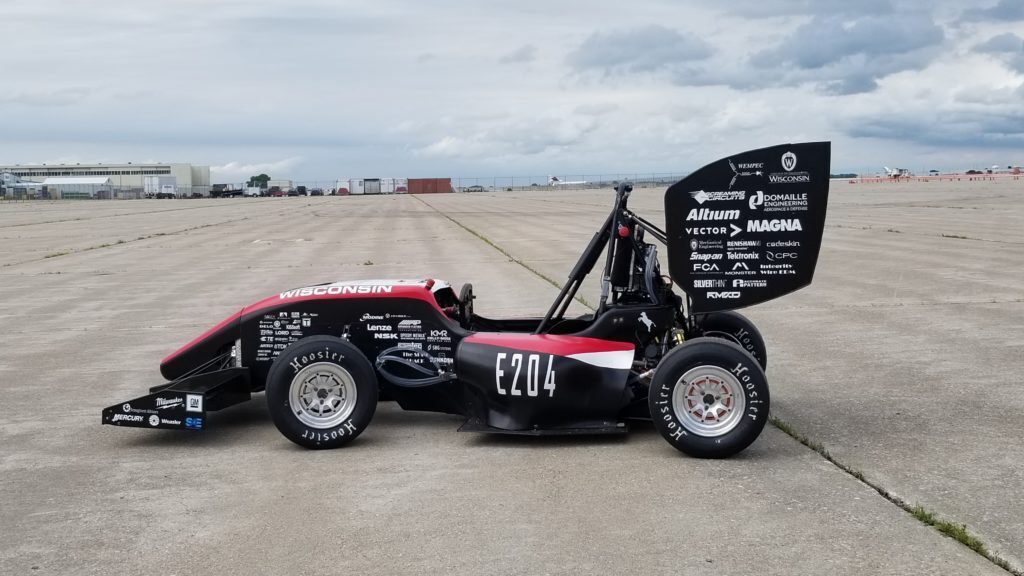
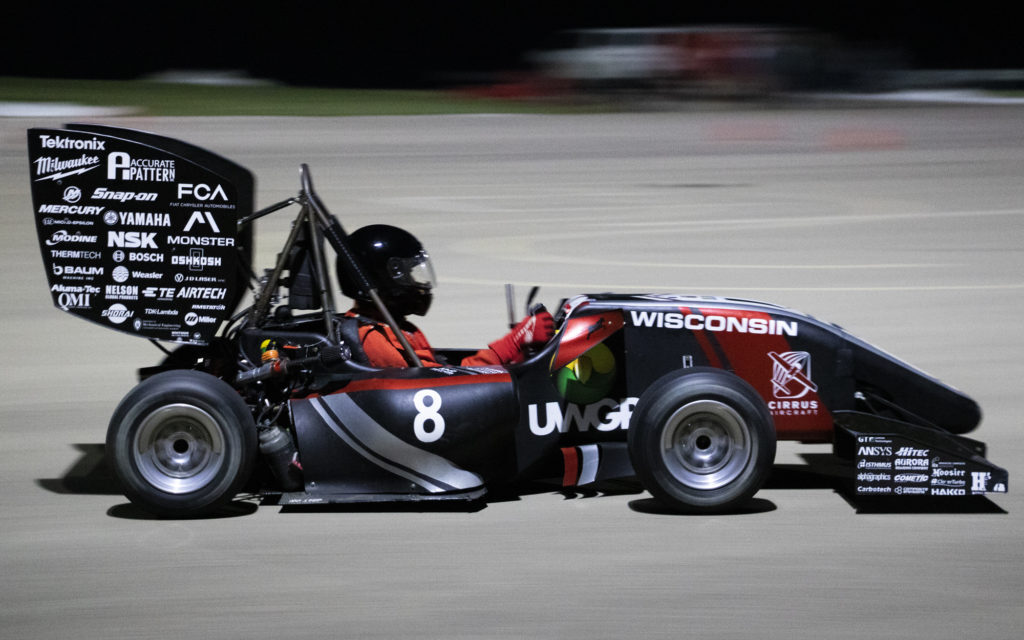
Suffering a major setback during the manufacturing season which severely limited our testing season, the 219C successfully persevered and campaigned at FSAE Michigan.
Featuring a redesigned battery, student-designed motors and motor controllers, and custom high torque planitary transmissions paired with a redesigned hybrid monocoque-tube chassis, the 218E offered an all wheel drive platform with an overall 20% decrease in weight.
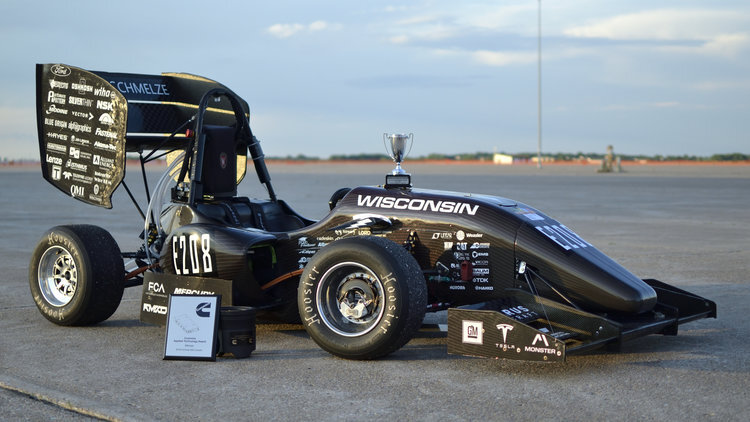
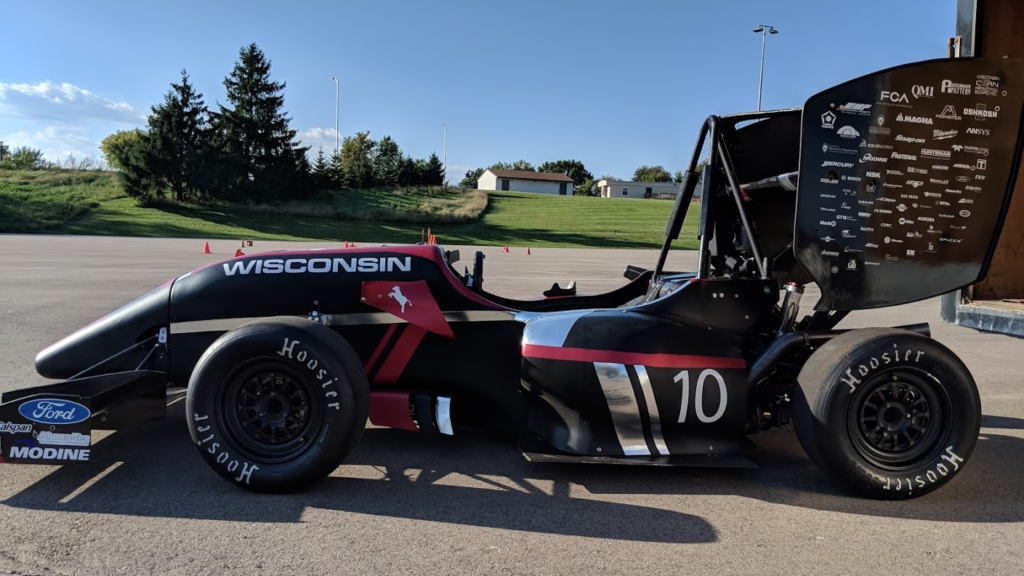
An evolution of its predecessor, the 218C featured our powerful turbocharged Yamaha YZ-450 package along with many other improvements. The 218C earned us 4th in design and finished 8th overall at FSAE Michigan.
Our first ever electric vehicle, the Wisconsin Racing 217E was designed to share a monocoque with our combustion car while running a customized rear subframe to suit the electric powertrain. The team earned 1st in design with this all wheel drive vehicle.
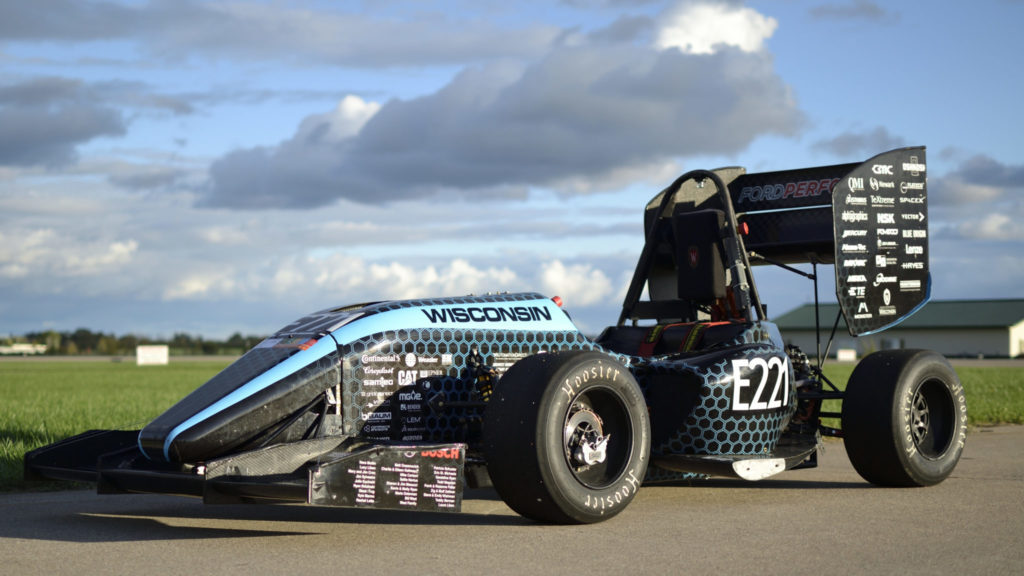
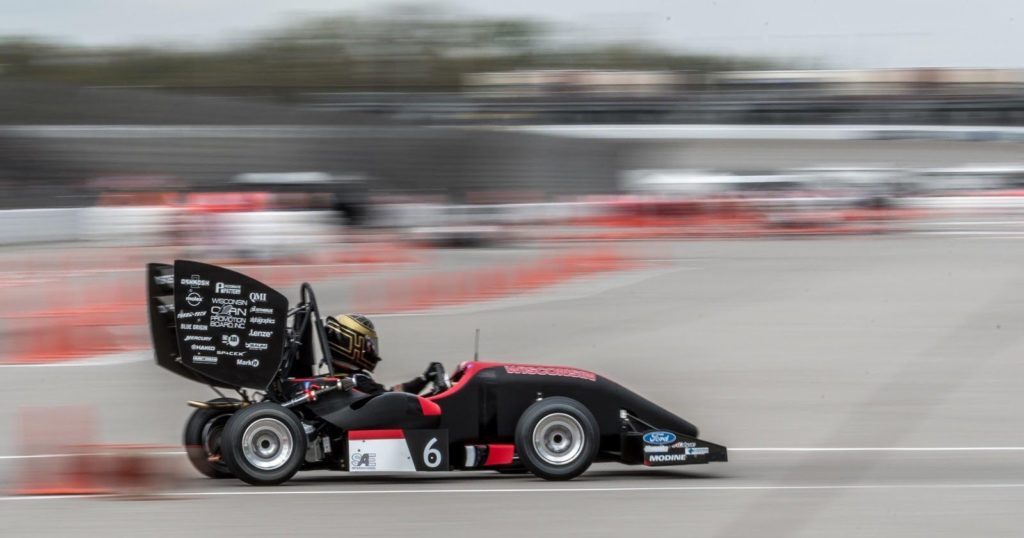
The 217c featured a revolutionary change with our third generation monocoque, redesigned aero package, and new vehicle kinematics. The 217C ran our Turbocharged Yamaha YZ-450 package for the first time and carried us to a 10th place finish at FSAE Michigan.
Running our second Generation monocoque, the 216C was our last car to feature our turbocharged KTM single cylinder engine package.
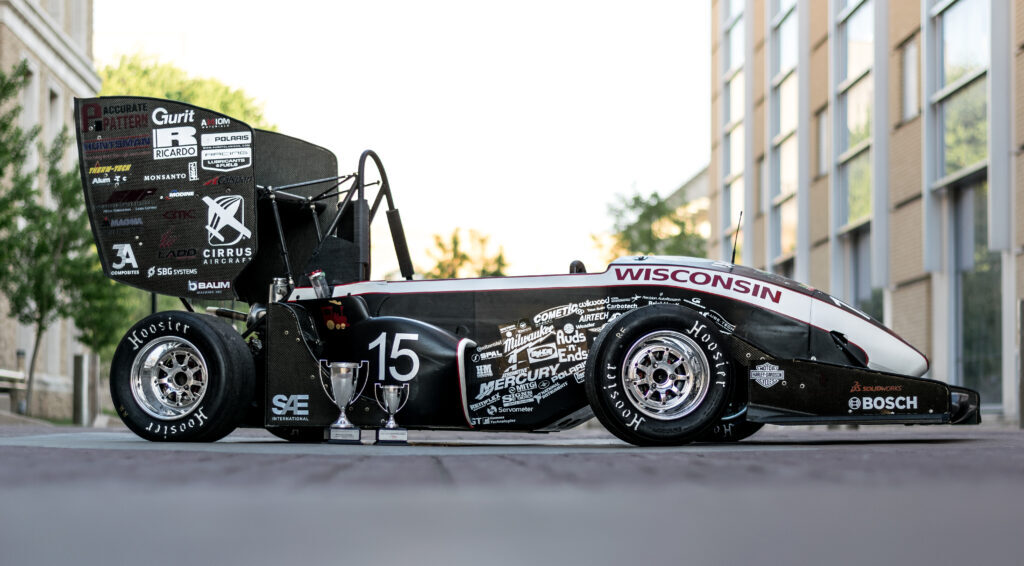
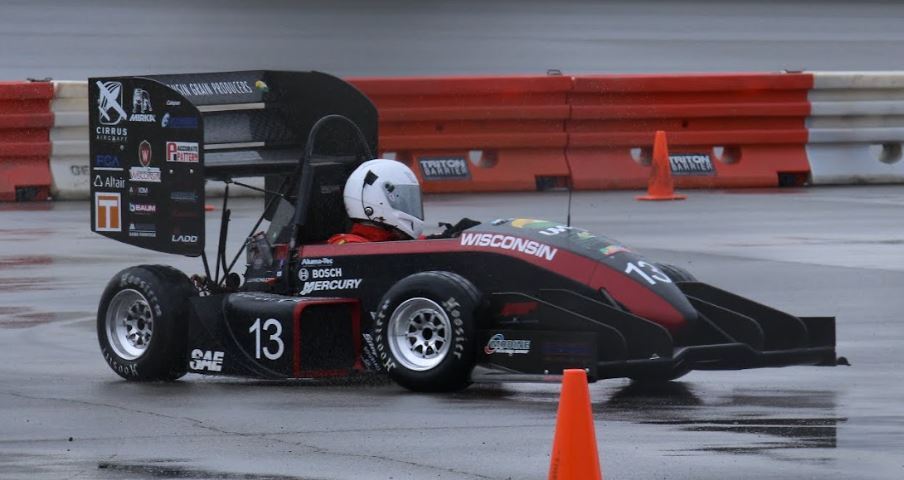
Following a large change in the aerodynamics rules for competition, the 215c featured a smaller aero package than its predecessor.
The 214C showcased our largest aero package to date. In addition to the unique aero package, the 214c was our last car to run a full tube chassis.
